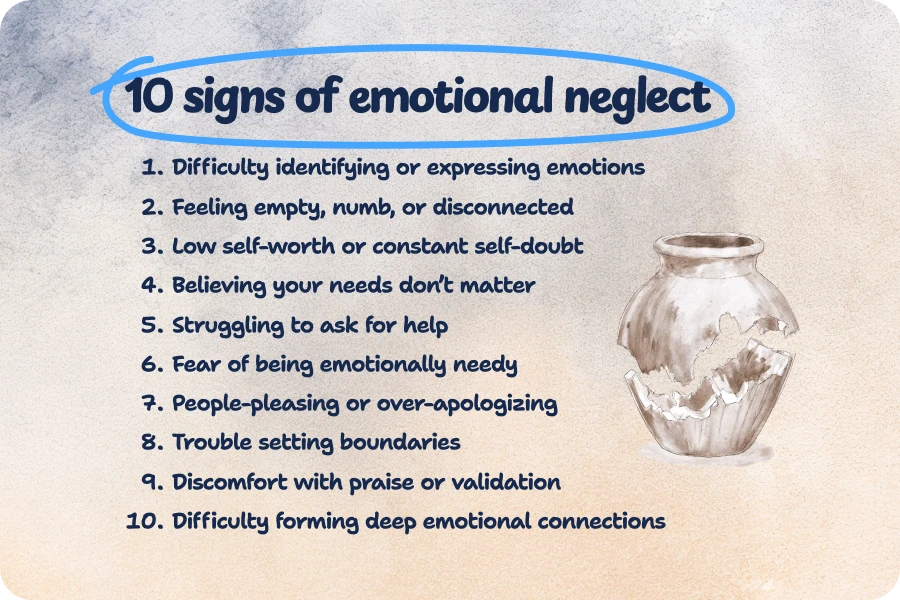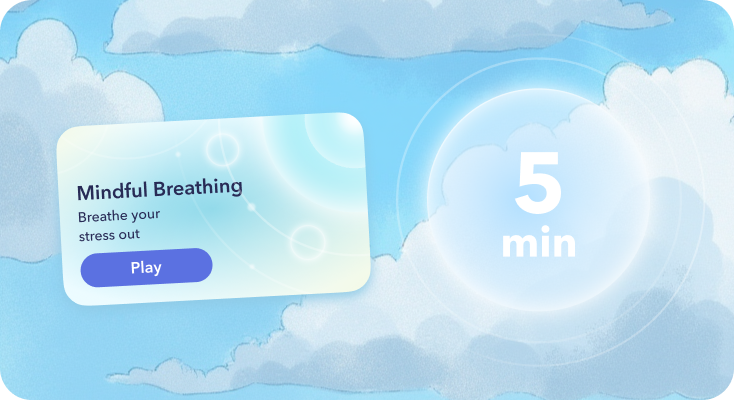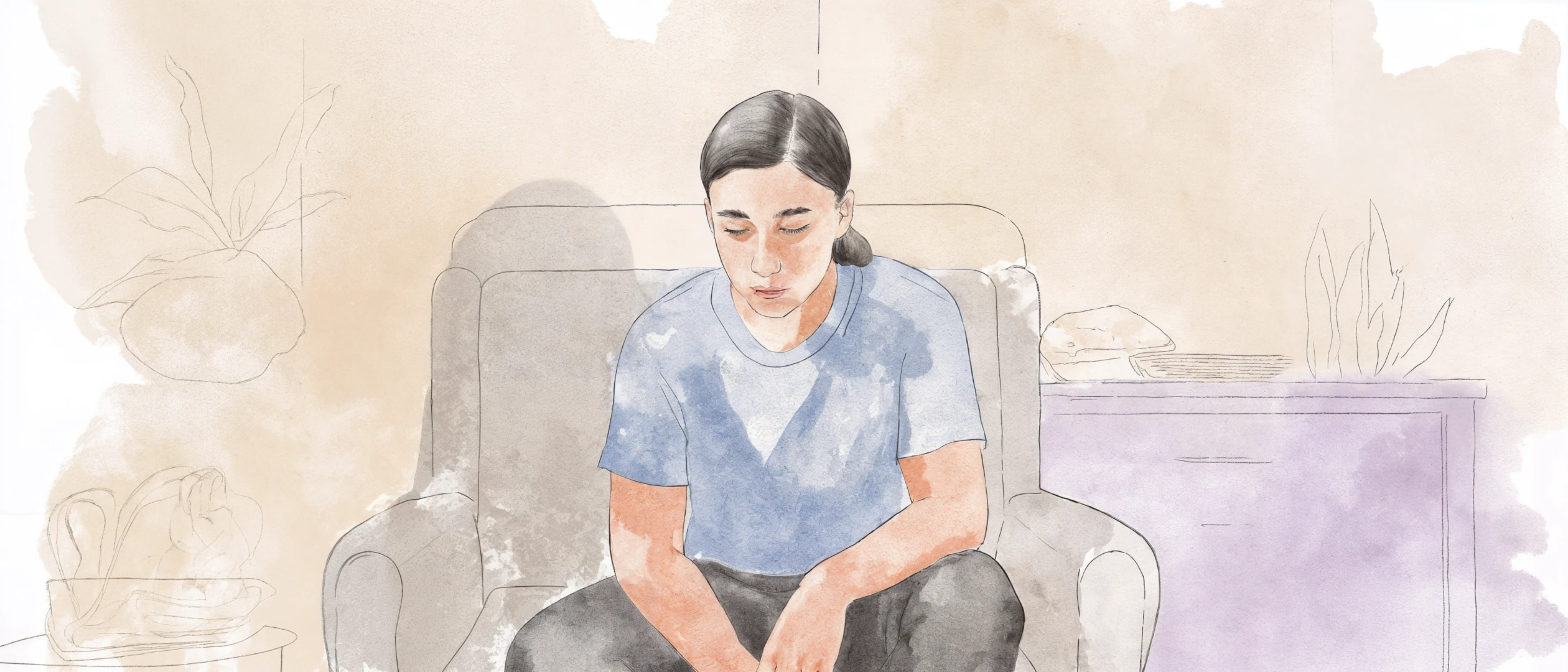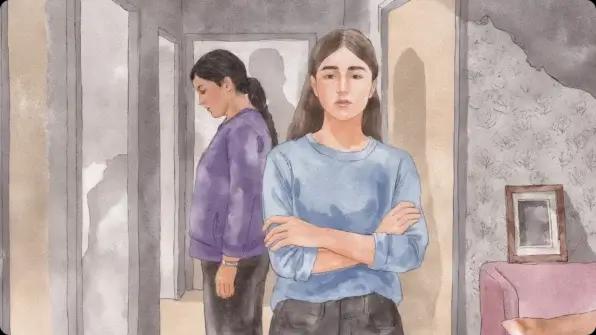Maybe you constantly feel like you’re not good enough, no matter how hard you try. Or you struggle to make friends and feel close to people. Perhaps there’s an emptiness inside, even when life seems good on the outside. That’s how emotional neglect can manifest itself.
This article will explore childhood emotional neglect, how it affects mental health, and what signs to look for. Wondering whether you experienced emotional neglect? Take a test to find out!
What Is Emotional Neglect?
Emotional neglect is a form of childhood emotional abuse caused when a child’s needs aren’t being met. Emotionally neglectful parents chronically fail to notice, attend to, or respond sufficiently to a child’s emotional needs. It is the “empty space” where emotional validation, comfort, and interest should have been.
According to the British Journal of Psychiatry research, child neglect is one of the most common types of childhood emotional maltreatment [1]. In adult life, a person who experienced childhood emotional neglect may struggle to identify their own desires and try to satisfy the expectations of others while feeling a strange, persistent sense of emptiness.
While often discussed in childhood, emotional neglect can exist in any relationship where emotional exchange is expected. For example, if you’re feeling sad or happy and your friend or partner ignores or dismisses your feelings, that’s emotional neglect.
Looking for more quizzes to get insights about your personality or relationships? Try the Breeze self-discovery test about childhood trauma, attachment style, narcissistic partner, and many more.
5 Signs of Emotional Neglect
Identifying emotional neglect is often difficult because it is defined by an absence of action. Whether it happens in a marriage, a friendship, or a family, the signs of emotional neglect usually fall into a pattern of “invisible” dismissals.
1. The Logistics-Only Connection
You might talk about the schedule, the bills, or what to eat for dinner, but the “inner world”, such as your fears, wins, or anxieties, is never invited to the table. If you try to bring up a deeper feeling, the other person might look confused or quickly go back to “practical” matters.
Tough times were especially lonely. As a neglected kid, maybe you were struggling with a friendship or feeling stressed about school. You longed for your parent to notice and offer support, but they never really asked how things were going.
2. The “Shrinking” Effect
You may edit your stories before you tell them. You start to think, “This isn’t important enough to bring up,” or “They won’t care anyway.” Eventually, you stop sharing your needs entirely, becoming a smaller, quieter version of yourself to avoid negative emotions.
3. Chronic Invalidations
Emotional neglect often sounds like “helpful” advice that actually dismisses your reality and shuts down emotional intimacy. Common phrases include “You’re overthinking it” or “You’re too sensitive.”
Expert Insight
It can potentially touch on invalidation of successes as well (i.e., “When you were successful, you may have had a parent who told you something along the lines of ‘it was because of your genetics,’ ‘god gave you that gift,’ or ‘I’m surprised you were able to pull it off.'”)
Ian Pearson
Mental health professional
4. Feeling “Alone While Together”
This is perhaps the most reliable internal sign of emotional neglect. You can spend an entire evening sitting next to someone on the couch, but feel a deep sense of isolation. You might be trying to connect while the other is emotionally “blind” or simply doesn’t have the tools to meet that depth. Even unintentional emotional neglect can contribute to what’s known as a mother wound or father wound.
5. High-Stakes Independence
In neglectful environments, you learn that asking for help is a losing game. As a result, you become “hyper-independent.” You handle every crisis, sickness, or stressor alone, even when there are people around who could help. To you, “needing” someone feels like a dangerous vulnerability.

3 Common Reasons for Emotional Neglect
Understanding why emotional neglect happens is usually about uncovering an intergenerational trauma and a lack of emotional awareness.
1. Unintentional emotional neglect as a result of trauma
Caregivers ignore your feelings not out of indifference, but because they may not know how to express them. They literally don’t see the “signals” you are sending because no one ever responded to theirs.
2. Thinking that providing is enough
They’ll tell you that you’re “ungrateful” if you try to talk about how lonely or ignored you feel. Such people may highlight that you have the car to drive or the house to live in as proof of their good parenting. For them, having a stable income is a way to hide the fact that they aren’t emotionally present.
3. Withholding affection on purpose
There can also be a persistent belief that emotional distance builds “character.” Some people withhold comfort or validation because they fear that “indulging” feelings will make the other person “soft.” According to a 2022 study on the effects of parental praise and criticism, it can affect a child’s self-esteem, emotional development, and relationships [2].
Effects of Emotional Neglect in Adults
Here is how childhood neglect manifests in adult life:
1. Emotional Numbness
When asked, “What do you need at this moment?” or “How does this situation affect you emotionally?”, your mind simply goes completely blank. Because your emotions were never mirrored or validated when you were small, you may not know how to feel your feelings.
2. Chronic Self-Doubt
Neglect teaches a child that their needs are a nuisance. In adulthood, this turns into a loud inner critic that shames you for having any desires at all. You might find yourself constantly apologizing for taking up space or feeling like an impostor in your own life. You don’t trust your instincts because, growing up, those instincts were never validated by the people in charge.
3. People-Pleasing Tendencies
One of the mental health consequences of emotional neglect can be people-pleasing behaviors that make you prioritize others’ needs and desires over your own. The reason is low self-esteem and a deep-seated fear of abandonment. You wait for the moment people realize you’re “empty” inside, leading to a life of over-performing to stay “lovable.”
4. Insecure Attachment Styles
Relatable and common traits in insecure attachment styles are “being clingy,” jealousy, and moving from intense needs of attention to complete avoidance of interaction, and/or feeling isolated when others aren’t physically present.
Expert Insight
If any of this sounded familiar to you, you are not alone! Start by learning your own attachment style and reading about what secure attachment styles look like. Reach out to a therapist to learn ways to practice changing those insecure qualities. Go through an attachment workbook, and really spend time understanding your own history, as well as what you really want to get out of your future relationships. Even though you may not have experienced the relationships you deserved as a child, it doesn’t mean that you can’t have healthy and fulfilling relationships as an adult!
Ian Pearson
Mental health professional
Examples of Emotional Neglect
1. The “Problem Solver” Parent. If you came home crying because you got dumped or failed a test, they didn’t hug you or ask how it felt. Instead, they told you to go wash your face and start your homework. They can handle the physical stuff, but panic at the sight of a feeling.
2. Narcissistic Parenting. Sometimes a narcissistic parent is super involved when you’re doing something that makes them look good, like winning an award or playing a sport, but the second you’re just “you,” they lose interest. You only get attention when you’re performing.
3. Emotionally unavailable partner. If you’re upset or having a rough night, they suddenly have an errand to run, or they just go to the other room. They’ll tell you they “don’t do drama” or ask you to “stop being so sensitive.” You end up wondering why you’re trying so hard to connect with someone who doesn’t know how to be emotionally available.
5 Healing Tips for People Who Experienced Childhood Emotional Neglect
Here’s how you may start the process of healing from childhood emotional neglect:
1. Practice the “Body Scan”
Pulling yourself back into your physical self—even just for five seconds—is how you start feeling things again. To ground yourself, just stop and ask, “Where am I holding the tension right now?” Maybe your jaw is clenched, or your shoulders are up at your ears.
As you notice it, gently soften the area and pair the awareness with Breeze mindful breathing. Slow, steady breaths can help calm your nervous system and bring you back into the present moment.

2. Try the “Small Ask” exercise
You probably hate asking for help. It feels like a weakness. This practice can help you express your needs and rewrite the “invisible” script in your head.
- Pick a friend or a coworker who actually likes you.
- Ask them to grab you a napkin, check a quick email for a typo, or pick up a specific snack if they’re already at the store. This shouldn’t be a “can you help me move” kind of ask, but something totally tiny and “unnecessary.”
- Try not to over-explain. This is the hard part. Don’t say, “I’m so sorry to bother you; I know you’re busy, but if it’s not too much trouble…” Just say, “Hey, can you grab me a water while you’re up?”
3. Practice “Productive Conflict”
People who experienced childhood emotional neglect often run from conflict because they assume it leads to abandonment. Pick a low-stakes argument. If the waiter gets your order wrong, send it back. If a friend is ten minutes late, tell them it bothered you.
Expert Insight
These could include practicing saying “no” when you aren’t sure if you have the time or ability to do something. Setting up close friends/family to “check in with” and talk through situations that made you feel bad, etc.
Ian Pearson
Mental health professional
4. Stop the “Fine” reflex
When someone asks how you are, “I’m fine” is the neglect survivor’s shield. Try to ban that word for a week. If you aren’t ready to get deep, just say, “I’m tired” or “I’m busy.” It’s a small way to stop erasing your own reality just to make things easier for everyone else.
5. Create a “Resentment Map”
Resentment is usually just a signal of a boundary that you didn’t set because you didn’t think you were allowed to. Pay attention to who makes you feel bitter. That bitterness is actually a map showing you where you need to start saying “no.” If you feel emotionally neglected in your adult relationships, you may seek professional support.
Sources
- Kumari V. Emotional abuse and neglect: time to focus on prevention and mental health consequences. November 2020
- van Houtum, L. A. E. M., Will, G. J., Wever, M. C. M., Janssen, L. H. C., van Schie, C. C., Tollenaar, M. S., & Elzinga, B. M. Adolescents’ affective and neural responses to parental praise and criticism. March 2022
Disclaimer
This article is for general informative and self-discovery purposes only. It should not replace expert guidance from professionals.
Any action you take in response to the information in this article, whether directly or indirectly, is solely your responsibility and is done at your own risk. Breeze content team and its mental health experts disclaim any liability, loss, or risk, personal, professional, or otherwise, which may result from the use and/or application of any content.
Always consult your doctor or other certified health practitioner with any medical questions or concerns
Breeze articles exclusively cite trusted sources, such as academic research institutions and medical associations, including research and studies from PubMed, ResearchGate, or similar databases. Examine our subject-matter editors and editorial process to see how we verify facts and maintain the accuracy, reliability, and trustworthiness of our material.
Was this article helpful?






